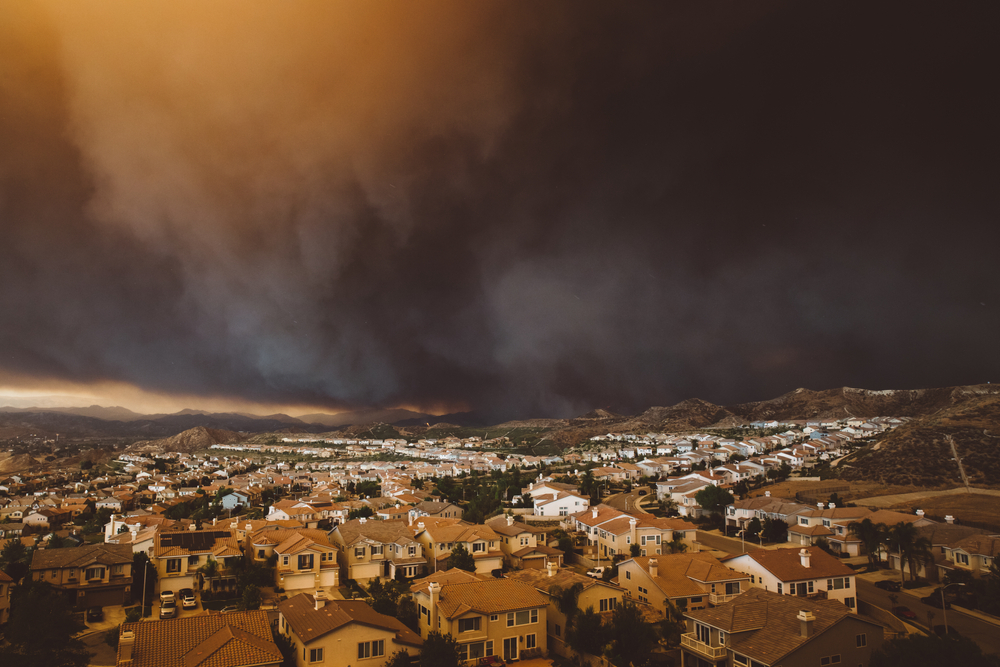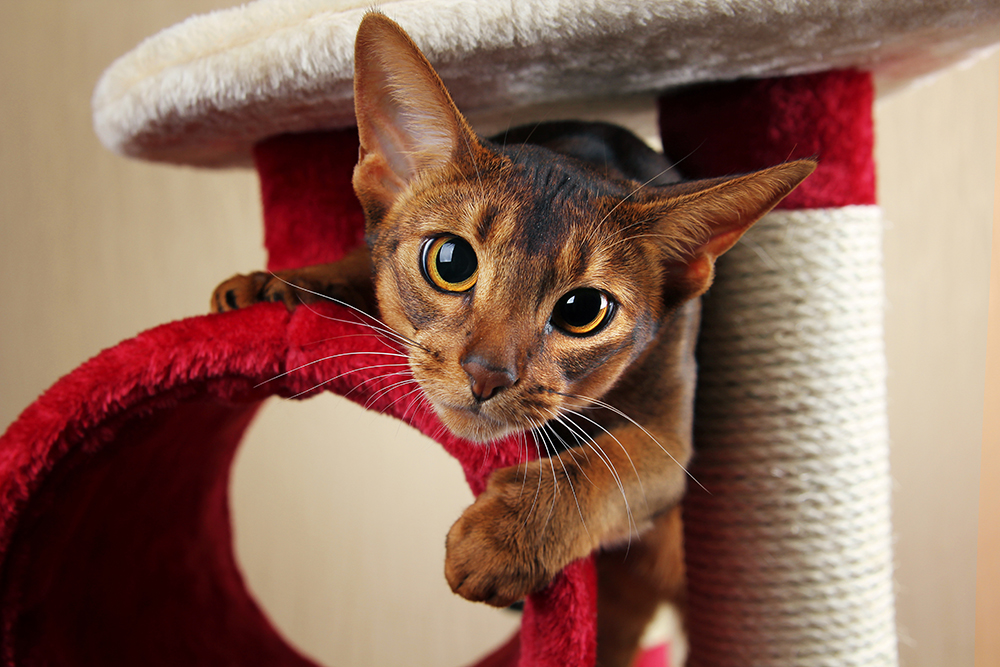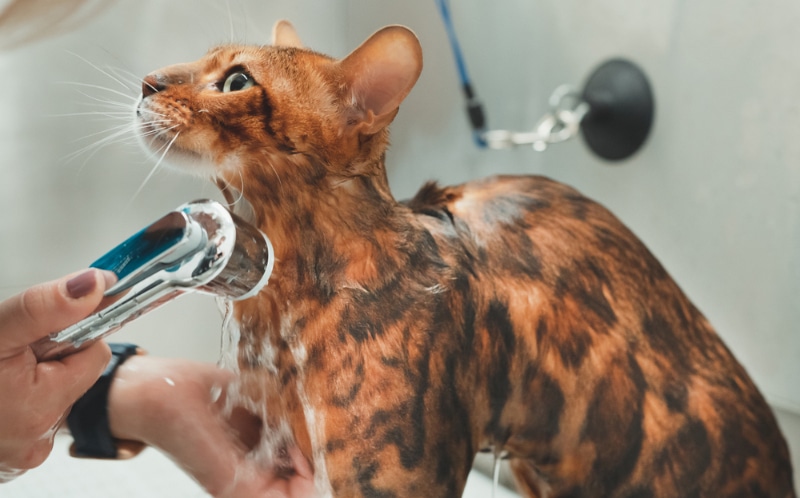Wildfires are common across the US and typically occur from spring to fall, particularly in dry areas like parts of California. You may know how to handle a wildfire situation for yourself and your family, but what about your pets? They can be just as affected by smoke, and if you need to evacuate, they add a layer of complexity.
The key to getting through a wildfire is planning ahead. Don’t wait until the situation becomes an emergency. Here are some tips to ensure your cats are safe and you’re prepared for the worst-case scenario.

The 9 Tips to Keep Your Cat Safe of Wildfire Smoke
1. Pack a Pet Emergency Kit

You should always have a pet emergency kit, not just for wildfires but for any emergency or natural disaster.
- Pet carrier for each cat
- Two-week supply of food and water
- Medications and dosing instructions
- Pet first-aid kit
- Non-spill food and water bowls
- Cat litter box and litter
- Plastic bags for waste disposal
- Paper towels
- Disinfectants
- Extra leashes and collars
- Blankets
- Toys and treats
- Newspaper
2. Know Your Evacuation Options
Not all emergency shelters accept pets. Make a plan for where you can go and who will accept your pets well in advance. Consider getting a permanent form of identification like a microchip. If you have nearby neighbors, arrange for them to check on or transport your pets if you’re not home when disaster strikes.
3. Monitor Air Quality
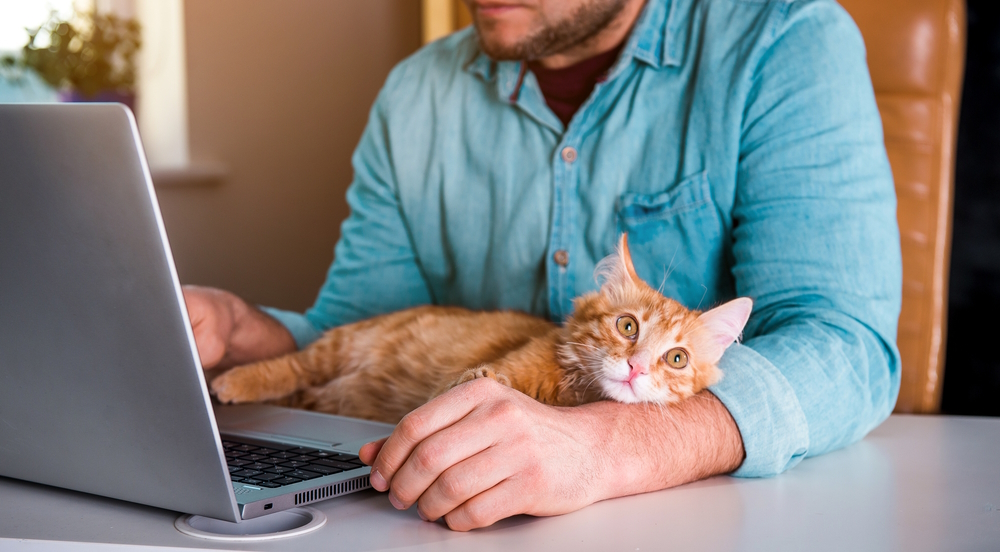
Even if you don’t need to evacuate, pay attention to the air quality alerts for your area. Smoke can lead to eye and respiratory infections in humans and animals, as well as more serious conditions. You can check for local alerts at AirNow. Make sure to follow the instructions, to stay inside or limit activity, for your pets too.
4. Keep Cats Indoors
If it’s safe to stay at home and you don’t need to evacuate, keep your cats indoors, even if they’re usually indoor/outdoor cats. Close all doors and windows to protect them (and you) from smoke. If your cats can’t have the run of the house safely, bring them into a bathroom, garage, or another safe room with adequate ventilation.
5. Monitor Your Cat’s Breathing

Pay attention to your cat’s breathing. If you notice signs like coughing or gagging, trouble breathing, noisy breathing, fatigue or weakness, reduced appetite or thirst, nasal discharge, red or watery eyes, or disorientation and stumbling, contact your vet.
If you need to speak with a vet but can't get to one, head over to PangoVet. It's an online service where you can talk to a vet online and get the advice you need for your pet — all at an affordable price!

6. Avoid Heavy Exercise
A wildfire is not the time to play with your cat outdoors or engage in rigorous activity. Make sure your cat is able to use a litter box, so they don’t need to go outside. Keep playtime indoors to lighter activity.
7. Create a Clean Room
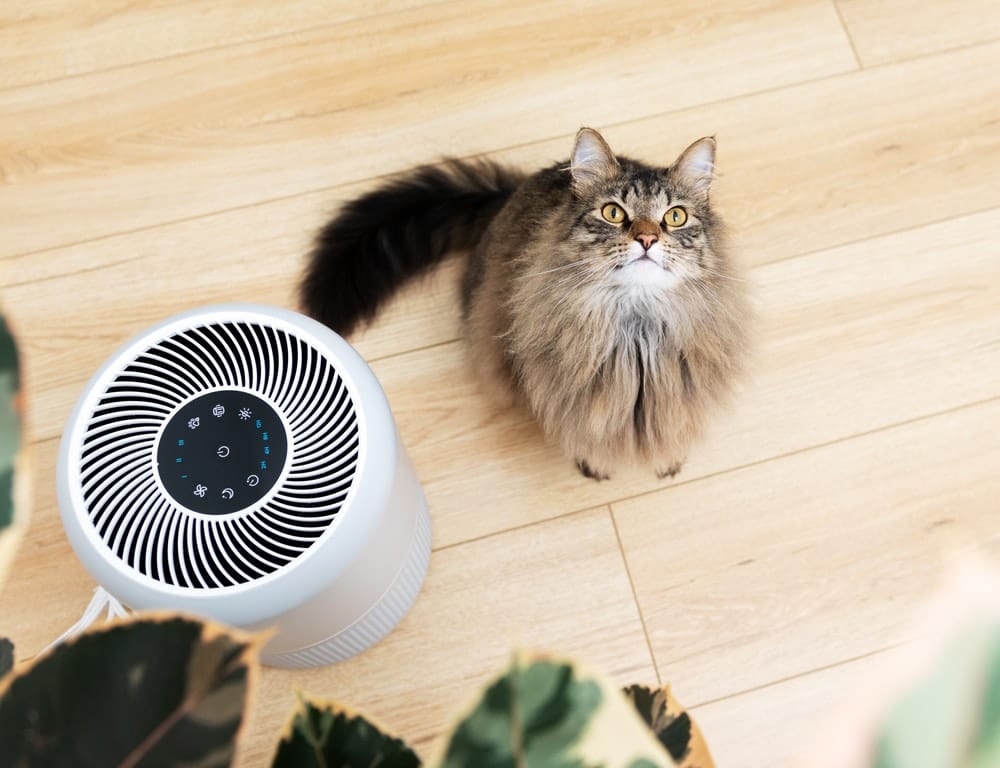
One of the biggest advantages of a wildfire is advanced preparation. If you have central air conditioning or a room unit, buy high-efficiency filters to capture the fine particles from smoke. You could consider making a clean room with a portable high-efficiency air cleaner as well.
8. Keep Indoor Air Clean
Avoid adding to indoor air pollution during a wildfire. Avoid frying or broiling food, burning scented candles, using a wood stove or wood-burning fireplace, or smoking cigarettes while there’s smoke in the air.
9. Always Include Your Pets in Your Evacuation Plan
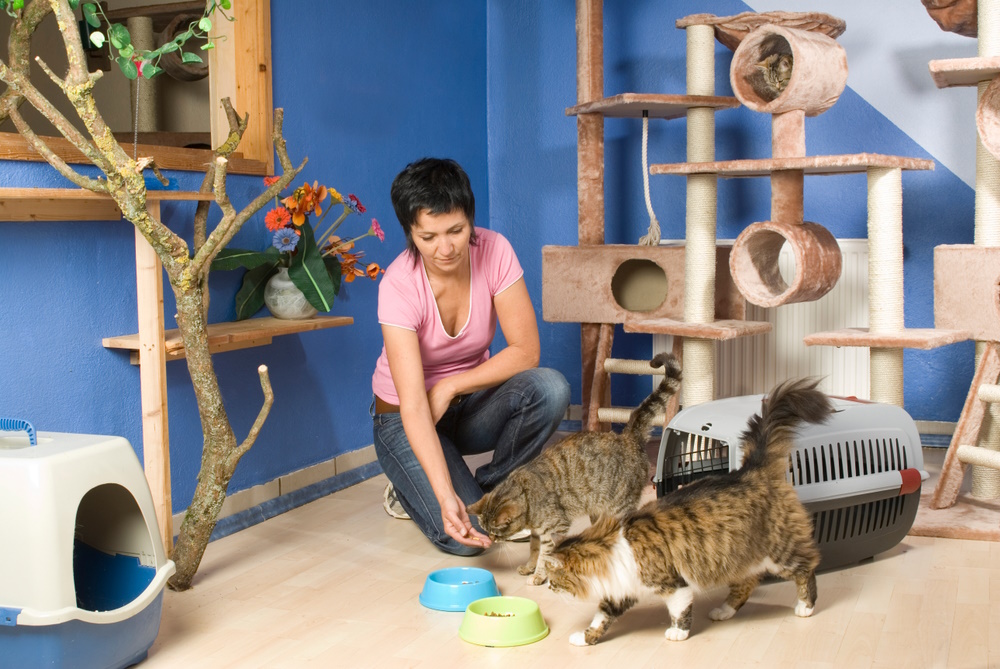
Do your absolute best to include your cat in your evacuation plan. Ideally, use a carrier, but a backpack can also work in a pinch. However, if you absolutely must leave your pets behind, have a plan for a clean, preselected area with enough food and water. Don’t confine your cat to a crate or outside without access to food, water, and litter boxes. The moment it’s safe, return for your pets.

Is Wildfire Smoke Dangerous for Cats?
Wildfire smoke can irritate your cat’s eyes and lungs just as much as your own. Animals with respiratory or cardiovascular disease are at a higher risk from smoke and should be protected and monitored more closely when the air quality is poor, but all animals can be affected if the conditions are severe. If you think your cat may have inhaled smoke or you notice any signs such as coughing, sneezing, or red or tearing eyes, consult with a veterinarian as soon as possible.

Conclusion
Wildfires can get out of control quickly. Preparing in advance for yourself and your pets can increase their chances of surviving a wildfire, so take the time to get your pet emergency kit together, know your evacuation plan, and equip your home with clean air options.
Featured Image Credit: Blanscape, Shutterstock
Contents
- The 9 Tips to Keep Your Cat Safe of Wildfire Smoke
- 1. Pack a Pet Emergency Kit
- 2. Know Your Evacuation Options
- 3. Monitor Air Quality
- 4. Keep Cats Indoors
- 5. Monitor Your Cat’s Breathing
- 6. Avoid Heavy Exercise
- 7. Create a Clean Room
- 8. Keep Indoor Air Clean
- 9. Always Include Your Pets in Your Evacuation Plan
- Is Wildfire Smoke Dangerous for Cats?
- Conclusion

